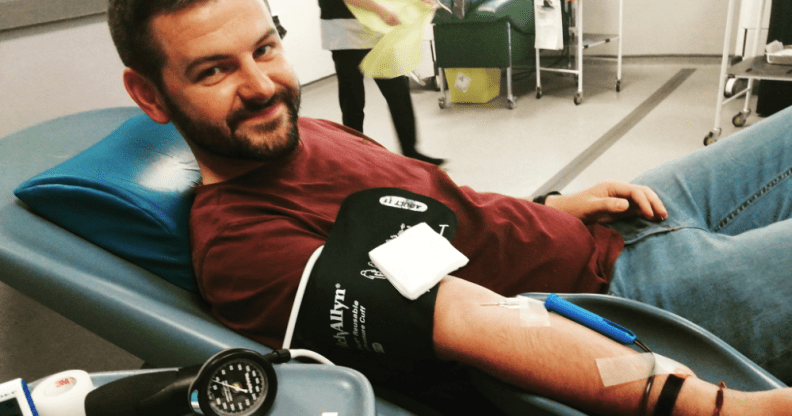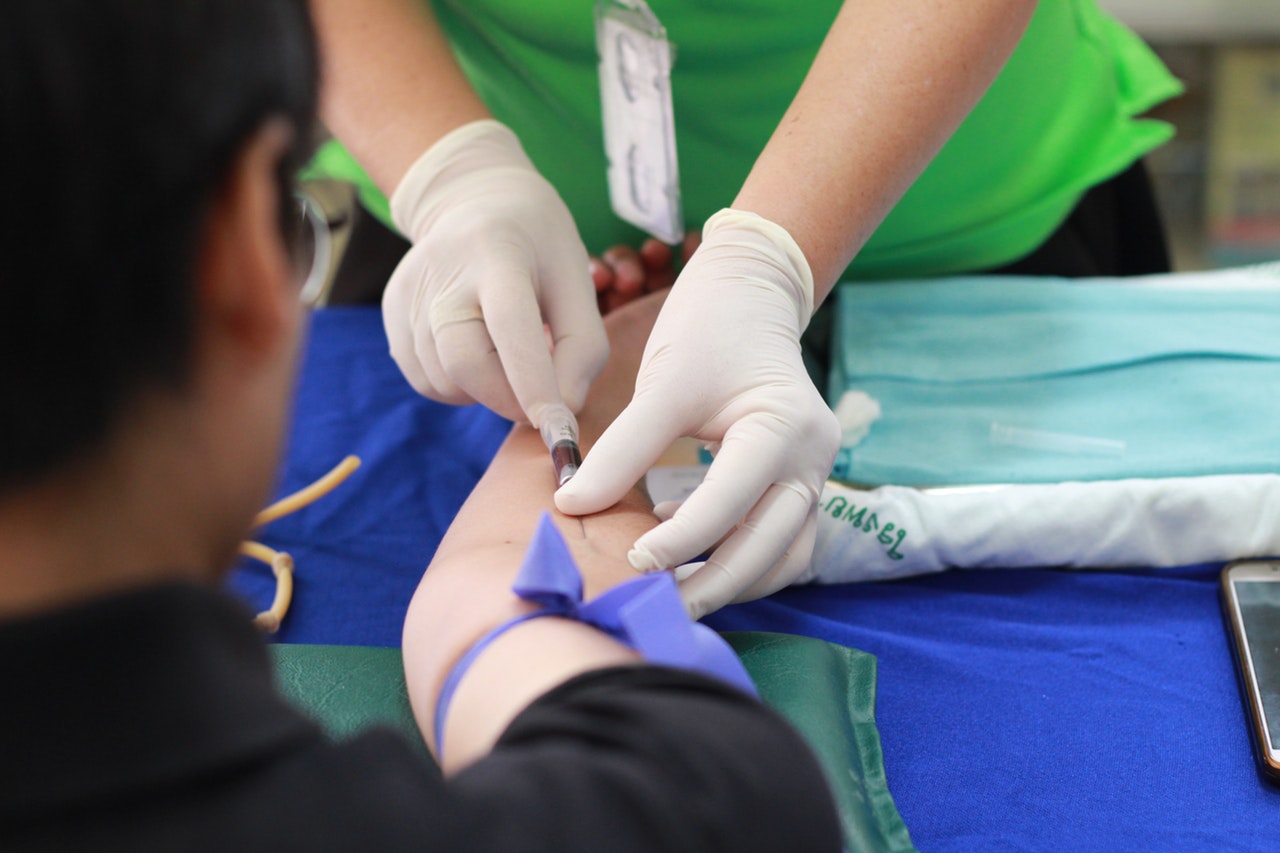Gay man makes history in Northern Ireland as first to give blood since donation rules brought in line with rest of UK

Northern Ireland’s blood donation restrictions have now been dragged into line with the rest of the UK (Facebook/Stevie Maginn)
A 28-year-old has become the first gay man to donate blood in Northern Ireland since its discriminatory restrictions were relaxed.
The controversial restrictions required men who have sex with men to remain celibate for 12 months before they would be allowed to give blood. This deferral period has now been reduced to three months, bringing the country in line with the rest of the UK.
While LGBT+ advocates have long pointed out that any deferral period for gay and bisexual men is unnecessary and discriminatory, the new rules are likely to free up thousands of potential blood donors in Northern Ireland.
Stevie Maginn, from west Belfast, told The Irish News he had waited for over a decade to fulfil his ambition to help others with a donation.
“It is something I’ve thought about doing for years and I’m already on a register to donate spinal fluid for stem cell donation and organ donation and stuff.
“I would have like to have done it before and there has been movement with appeal court rulings and since 2016 when Michelle O’Neill changed it to one year, but it was when (health minister) Robin Swann changed it to three months in line with the rest of the UK that it can really happen.”
Maginn is in a long-term monogamous relationship, but was able to donate as he hadn’t been sexually active for the duration of the coronavirus lockdown.
He’s pleased to have been able to donate blood at a time of national shortage, but stressed the need for further legislative changes to allow him to donate without having to live through a deadly pandemic.
“There needs to be a move towards a system based on donors’ sexual activity. It is not just an equality issue — I could have been donating blood for years to help the health service — but it is the risk of heterosexual who are not engaging in safe sex and perhaps have multiple sexual partners,” he said.
“They are able to give blood, but I can’t, despite being in a long-term monogamous relationship. We need to move to a system like Italy where the system is completely based on sexual behaviour and who is deemed risky.”
The original lifetime ban and subsequent restrictions were based on outdated guidelines from the HIV epidemic.
The HIV in gay and bisexual men is now minimal, and gender-neutral risk-based deferrals of blood donations are proven to be safe and feasible. These methods have already been adopted in Spain, Italy, and Portugal.


